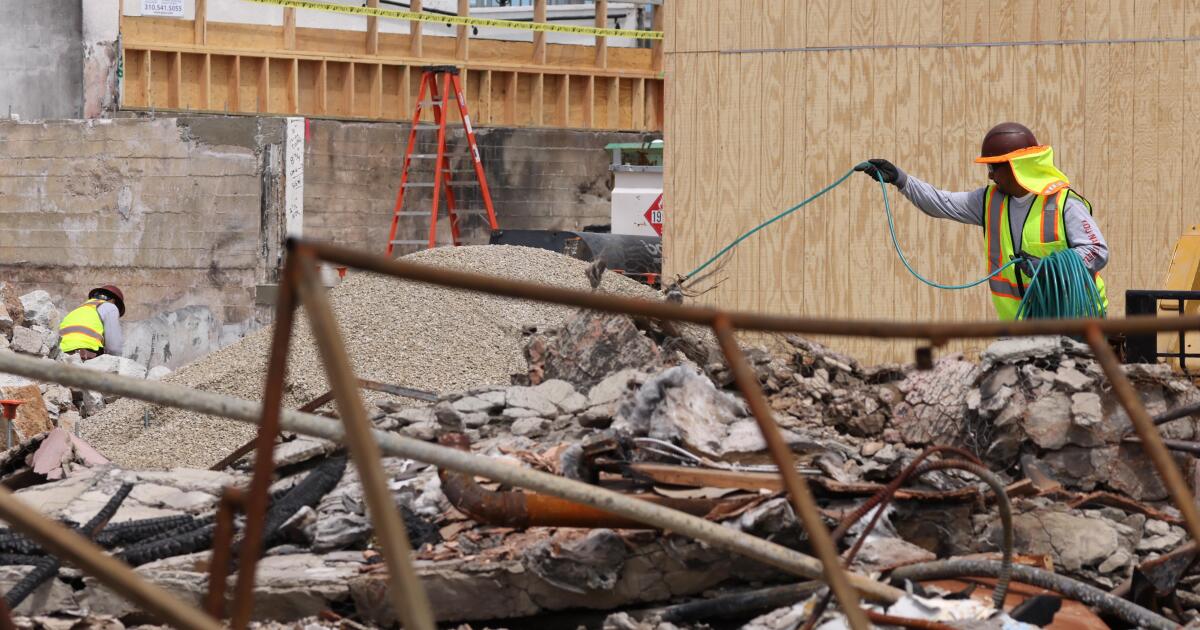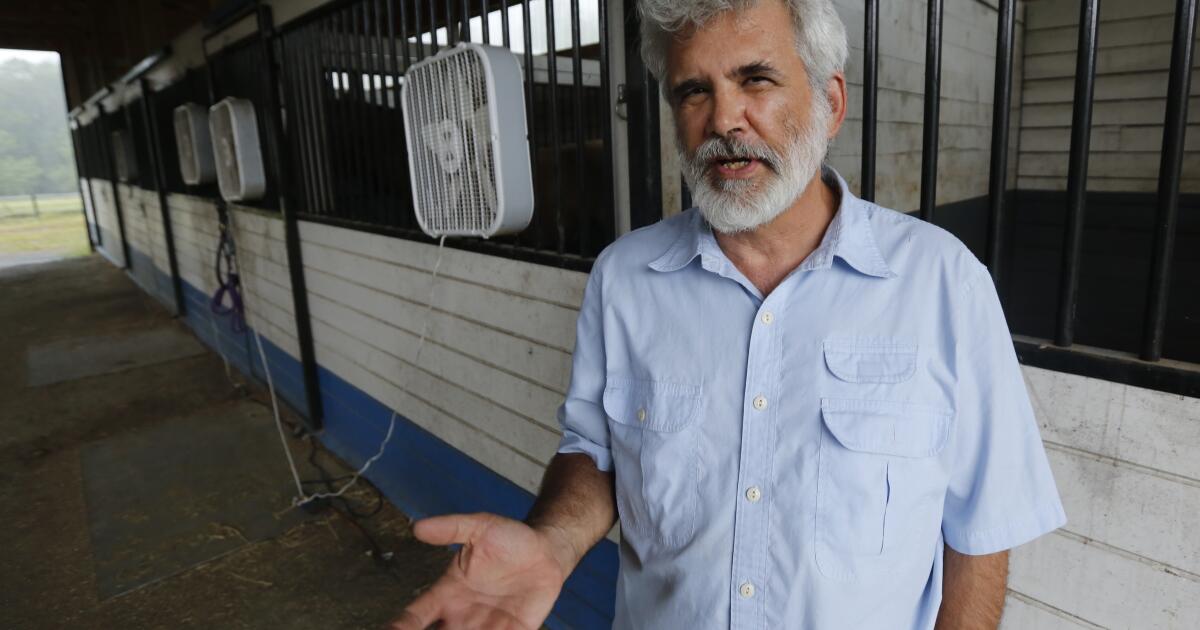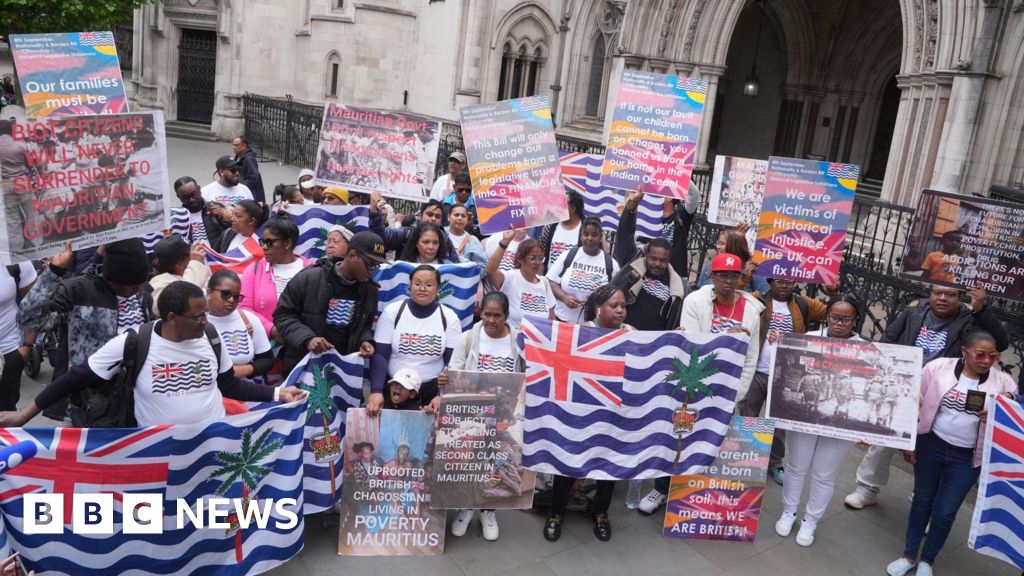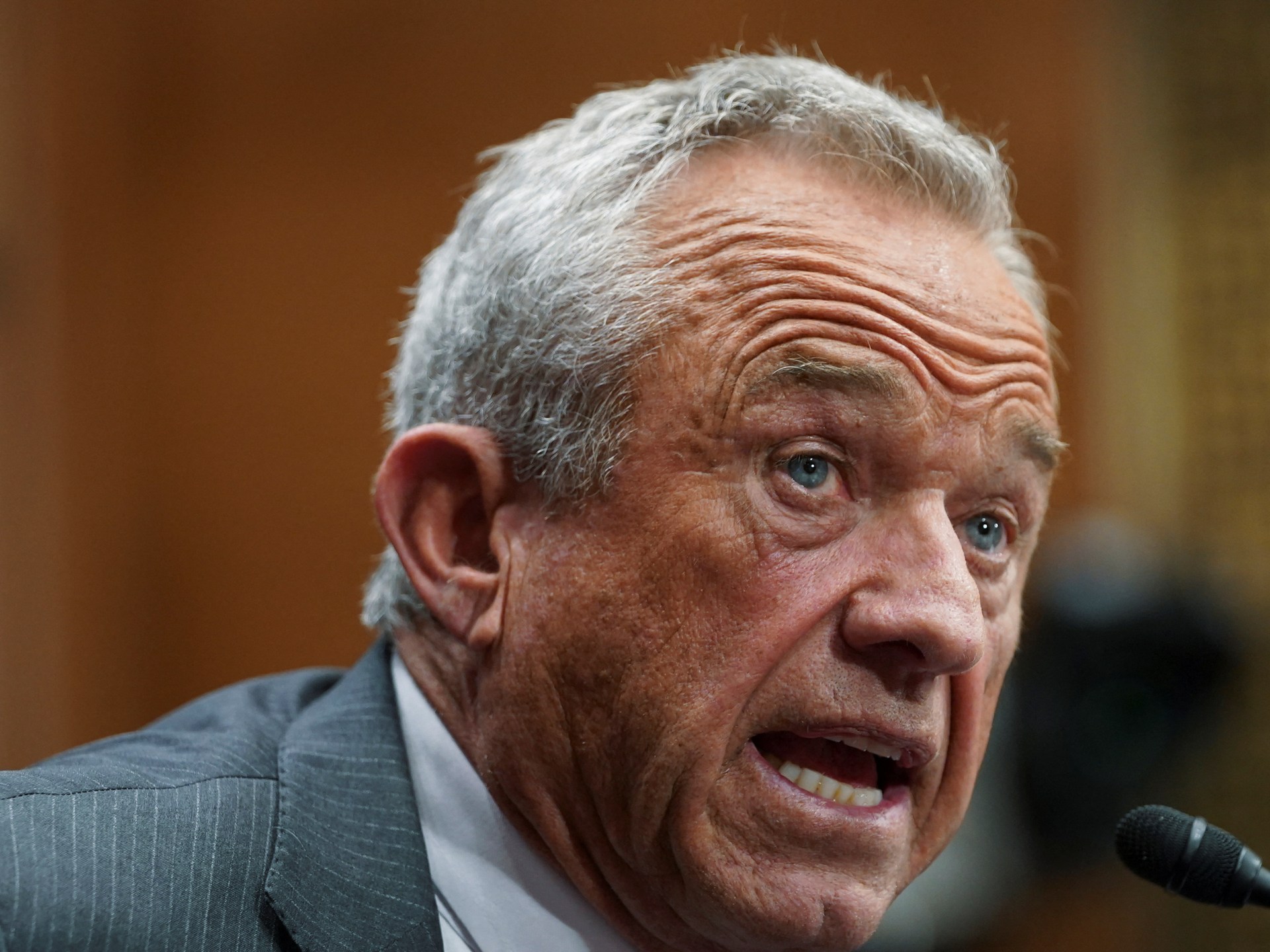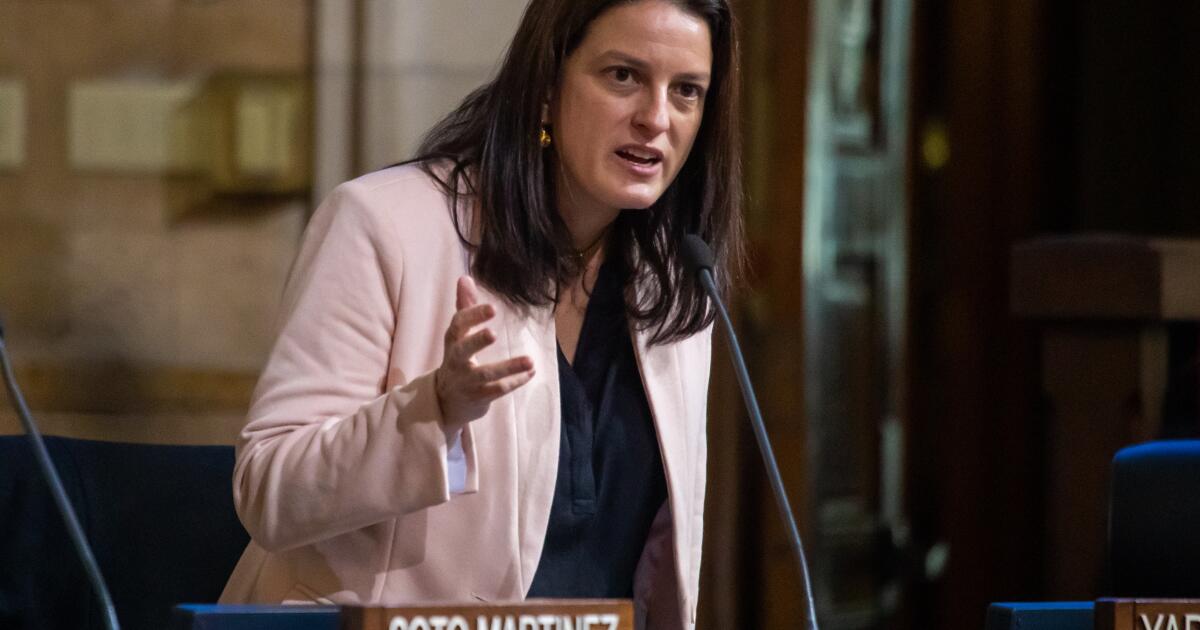An independent commission is urging the California Legislature to establish a new local authority to oversee and coordinate rebuilding after the most destructive fires in Los Angeles County history.
The call for state legislation to create the new rebuilding authority is one of the top proposals of the 20-member Blue Ribbon Commission on Climate Action and Fire-Safe Recovery, which on Friday issued its final recommendations.
Commission members said the new entity would be critical to manage the monumental rebuilding efforts after the January firestorms, which claimed at least 29 lives and destroyed 18,000 homes and other properties.
“The severity of the situation needs extraordinary measures. Business as usual just won’t work,” said Cecilia Estolano, a commission member and former CEO of the Los Angeles Community Redevelopment Agency.
The commission said the proposed Resilient Rebuilding Authority would streamline complex recovery efforts and prioritize the return of residents and businesses as neighborhoods are rebuilt in Altadena and Pacific Palisades.
The authority would use tax-increment financing and other funding sources to buy fire-razed lots that property owners want to sell and guide the rebuilding process — selecting developers and coordinating construction at scale. Those displaced by the fires would get first priority for the new homes.
The commission’s members said this would bring a coordinated approach, avoiding a free-for-all in which investors snap up properties and make new homes unaffordable for displaced people. The authority, the report said, is “designed to counterbalance the forces that drive displacement and inequality in the aftermath of disasters.”
“Left to business as usual, you will see this being driven by land speculation,” Estolano said. The aim is “a more balanced rebuilding, rather than one that’s purely determined by the marketplace.”
Under the commission’s recommendation, the Resilient Rebuilding Authority would be led by a board with members appointed by the governor, state lawmakers and local governments, and with citizen advisory boards providing guidance.
The commission also proposed asking voters to approve a ballot measure to create a new Los Angeles County Fire Control District, funded through a property tax, to focus on wildfire prevention, vegetation management and other efforts to reduce fire risks.
The panel said a property tax or fee, which would require voter approval, could either be assessed on properties in a certain area, or could be assessed county-wide, with higher fees in areas facing high fire hazards that require more investments.
The new district would be charged with creating and maintaining “greenspace buffer zones” between homes and open lands, and taking other measures to safeguard fire-vulnerable neighborhoods.
In all, the commission presented more than 50 recommendations, with a focus on rebuilding after the Palisades and Eaton fires in ways that prepare neighborhoods to better withstand intense wildfires worsened by climate change, and that also help address global warming by encouraging construction of all-electric homes.
The panel said L.A. County should fast-track permitting for all-electric homes, and the state should provide incentives to encourage electrification and solar power. The commission’s report says the new authority should “advance resilience and clean energy objectives.”
The Blue Ribbon Commission was formed by Los Angeles County Supervisor Lindsey Horvath and includes representatives of businesses, local government, civic organizations and environmental groups.
“Key strategies like defensible space, solar with battery backup, and all-electric construction don’t just safeguard homes — they cut costs and protect our environment,” Horvath said, adding that the panel’s proposals lay the groundwork for a “climate-smart, fire-safe future.”
The commission, which had presented its initial proposals in May, said in its report that the fires represented one of the costliest climate disasters in U.S. history and a “harbinger of future risks facing the region in terms of extreme drought, weather, heat, and fire.”
The commission said its goal is to “enable communities to rise out of the ashes stronger.”
“Bold, coordinated action is needed to counter the risks of displacement, rising insurance costs, and deepening community vulnerability to future climate events,” the commission’s report says. “By acting decisively, Greater Los Angeles can become a model for climate-resilient, equitable recovery.”
Some of the commission’s other recommendations include changes such as:
- expanding the federal government’s fire debris removal program;
- standardizing soil testing and cleanup;
- ensuring that construction meets “fire-hardened” building standards and that building codes maximize spacing between buildings;
- creating “buffer zones” with appropriate vegetation to reduce fire risks;
- prioritizing additional water storage capacity in neighborhoods, and systems with external sprinklers to douse homes, parks and schools;
- and creating a voluntary program to “shift development from high-risk, constrained, or uninsurable parcels to more suitable sites.”
Some of these steps can be taken by city or county leaders, utilities or other entities.
Matt Petersen, the commission’s chair and chief executive of Los Angeles Cleantech Incubator, which works with startups to promote renewable energy, said the enormous task of rebuilding demands “additional resources and coordination and economies of scale that we think can only come through this authority.”
Similar development authorities have been set up to oversee rebuilding in areas devastated by other major disasters, such as the 1989 Loma Prieta earthquake, the 1994 Northridge earthquake, the 9/11 attacks and Hurricane Katrina.
More than 40 academic experts from UCLA provided support to the commission, advising members on recovery and rebuilding after disasters.
“Without intentional, deliberate leadership by government, and by government that’s accountable to the communities, an unmanaged recovery process will only widen disparities,” said Megan Mullin, faculty director of the UCLA Luskin Center for Innovation, who led the university team. “That is seen over and over again through disaster recovery processes.”
Mullin said with strong guidance, government can streamline rebuilding in a way “that makes these communities more fire-safe, more climate-resilient.”
“We cannot ignore the importance of climate change in driving this growing fire hazard that’s looming for the Los Angeles region, and actually throughout the Southwest,” she said. “We can make it as easy as possible for people to rebuild, but to rebuild in a way that will leave them more protected going forward.”
Estolano, the former L.A. redevelopment chief, was displaced from her home in Altadena by the Eaton fire. The home, which she had rented, was damaged by the fire and smoke, and she moved to Los Feliz.
“What I loved most about that community is that it was a mix of incomes. It was a vibrant place with a lot of local commerce,” she said.
She said unless a rebuilding authority is established that can buy properties and hold down land values, that sort of community won’t come back.
“The authority could enable a fair price and give these folks a chance as their first look to return back to what homes will be rebuilt,” she said. “And that will not happen without an authority.”
The commission also called for the city, county and state to work with the new authority to launch a campaign to secure philanthropic contributions to support rebuilding, aiming to raise $200 million over the next 1-2 years, and to help leverage additional financial resources.
